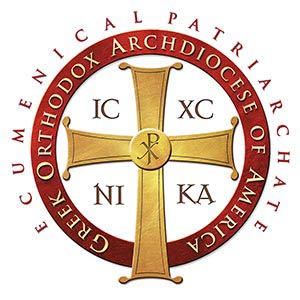Sunday of Orthodoxy
For more than one hundred years the Church of Christ was troubled by the persecution of the Iconoclasts of evil belief, beginning in the reign of Leo the Isaurian (717-741) and ending in the reign of Theophilus (829-842). After Theophilus's death, his widow the Empress Theodora (celebrated Feb. 11), together with the Patriarch Methodius (June 14), established Orthodoxy anew. This ever-memorable Queen venerated the icon of the Mother of God in the presence of the Patriarch Methodius and the other confessors and righteous men, and openly cried out these holy words: "If anyone does not offer relative worship to the holy icons, not adoring them as though they were gods, but venerating them out of love as images of the archetype, let him be anathema." Then with common prayer and fasting during the whole first week of the Forty-day Fast, she asked God's forgiveness for her husband. After this, on the first Sunday of the Fast, she and her son, Michael the Emperor, made a procession with all the clergy and people and restored the holy icons, and again adorned the Church of Christ with them. This is the holy deed that all we the Orthodox commemorate today, and we call this radiant and venerable day the Sunday of Orthodoxy, that is, the triumph of true doctrine over heresy.



 Camper Registration Opens
Camper Registration Opens  Great Lent is most certainly a challenge as we have experienced in the weeks of preparation for this season. We have reflected on the parables of the Tax Collector and the Pharisee and the Prodigal Son. We have considered the true nature and impact of repentance and humility. We have heard the words of our Lord concerning the Last Judgment and the manner of life and service that leads to eternal life.
Great Lent is most certainly a challenge as we have experienced in the weeks of preparation for this season. We have reflected on the parables of the Tax Collector and the Pharisee and the Prodigal Son. We have considered the true nature and impact of repentance and humility. We have heard the words of our Lord concerning the Last Judgment and the manner of life and service that leads to eternal life.